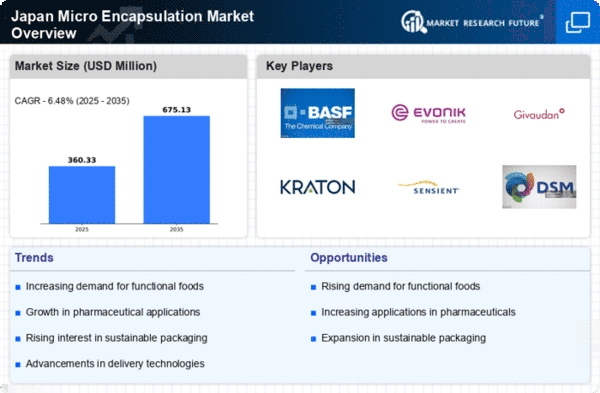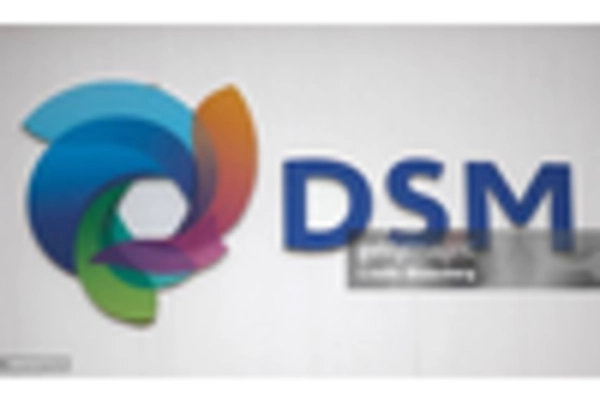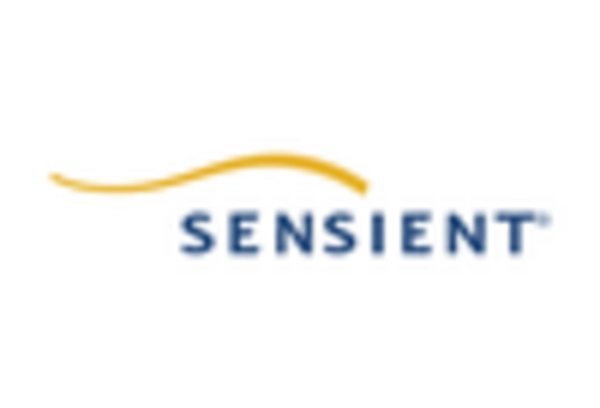Expansion of Nutraceuticals
The micro encapsulation market in Japan is significantly influenced by the expansion of the nutraceuticals sector. As health-conscious consumers increasingly seek dietary supplements that offer health benefits, the demand for encapsulated nutrients is on the rise. Micro encapsulation technologies enhance the bioavailability and stability of sensitive compounds, making them more appealing to consumers. In 2025, the nutraceuticals market in Japan is projected to reach $50 billion, with a substantial portion attributed to products utilizing micro encapsulation. This growth presents opportunities for manufacturers to innovate and differentiate their offerings, thereby driving the micro encapsulation market forward. The integration of encapsulated ingredients into functional foods and beverages is likely to become a key strategy for companies aiming to capture market share in this burgeoning sector.
Increasing Consumer Awareness
The micro encapsulation market in Japan is experiencing growth due to increasing consumer awareness regarding product quality and safety. As consumers become more informed about the benefits of encapsulated ingredients, such as enhanced stability and controlled release, demand for these products rises. This trend is particularly evident in the food and beverage sector, where consumers seek products that maintain flavor and nutritional value. The market is projected to expand as manufacturers respond to this demand by incorporating micro encapsulation technologies into their offerings. In 2025, the market is expected to reach a valuation of approximately $300 million, reflecting a compound annual growth rate (CAGR) of around 8%. This heightened awareness is likely to drive innovation and investment in the micro encapsulation market, as companies strive to meet evolving consumer preferences.
Rising Demand in Personal Care Products
The micro encapsulation market in Japan is also witnessing a surge in demand from the personal care industry. As consumers increasingly prioritize skincare and cosmetic products that offer enhanced efficacy, micro encapsulation technologies are being utilized to deliver active ingredients more effectively. This trend is particularly relevant in the formulation of anti-aging and moisturizing products, where encapsulated ingredients can provide sustained release and improved absorption. The personal care segment is projected to contribute significantly to the micro encapsulation market, with an expected growth rate of around 6% in 2025. Companies are likely to invest in research and development to create innovative formulations that leverage micro encapsulation, thereby enhancing product performance and consumer satisfaction.
Technological Advancements in Manufacturing
Technological advancements in manufacturing processes are playing a pivotal role in shaping the micro encapsulation market in Japan. Innovations in encapsulation techniques, such as spray drying and coacervation, are enabling manufacturers to produce high-quality encapsulated products more efficiently. These advancements not only reduce production costs but also enhance the scalability of micro encapsulation technologies. As manufacturers seek to optimize their operations, the micro encapsulation market is expected to grow at a rate of approximately 5% in 2025. The ability to produce encapsulated ingredients with improved functionality and stability is likely to attract a wider range of applications across various industries, including food, pharmaceuticals, and personal care, thereby driving overall market growth.
Regulatory Support for Advanced Technologies
Regulatory support for advanced technologies is a crucial driver for the micro encapsulation market in Japan. The government has been promoting research and development initiatives aimed at enhancing food safety and quality. This support encourages companies to adopt micro encapsulation techniques, which can improve product stability and shelf life. As regulations evolve to favor innovative food processing methods, the micro encapsulation market is likely to benefit from increased investment and adoption. In 2025, it is anticipated that the market will see a growth rate of approximately 7%, driven by favorable policies and funding for research in food technology. This regulatory environment not only fosters innovation but also enhances consumer trust in encapsulated products, further propelling market growth.
















